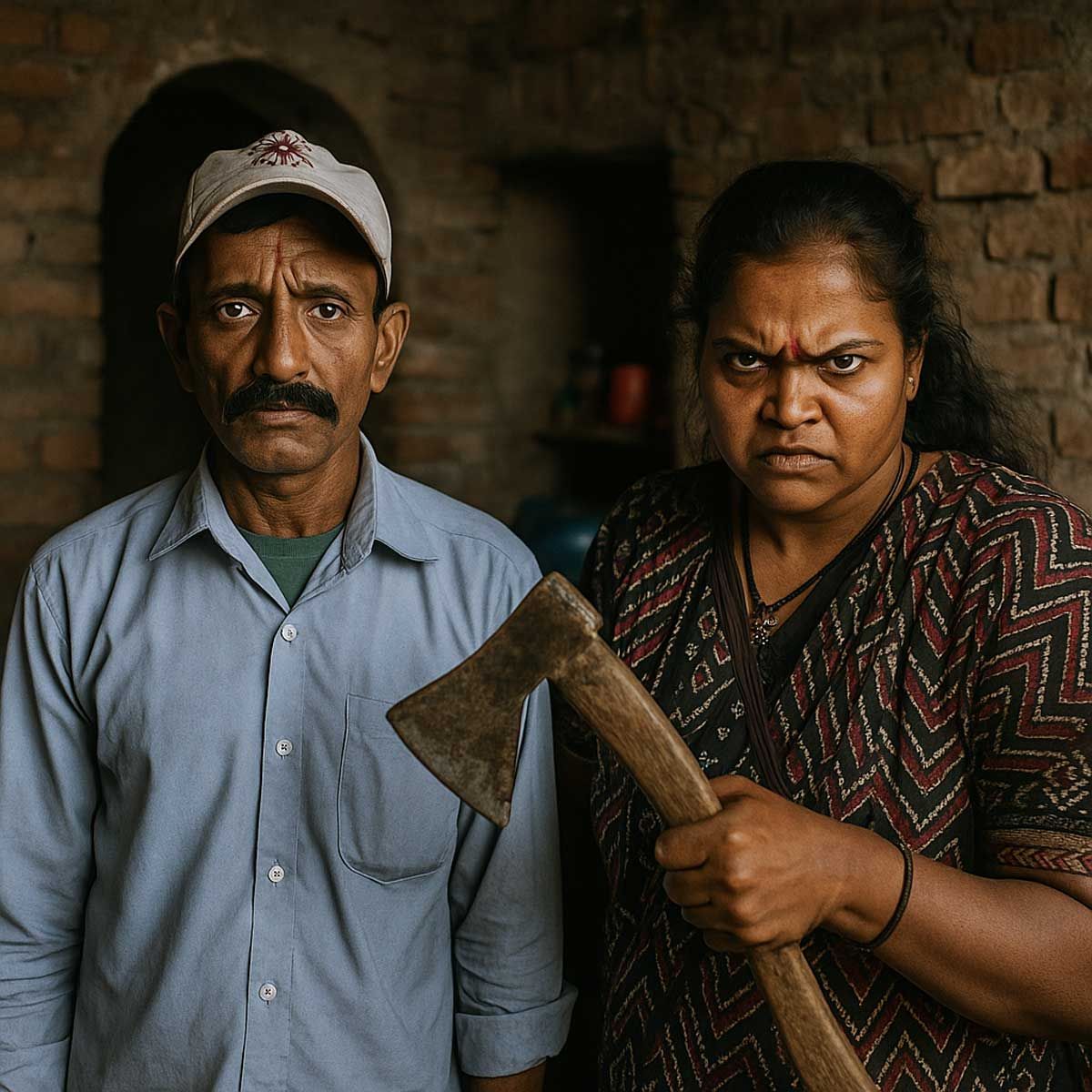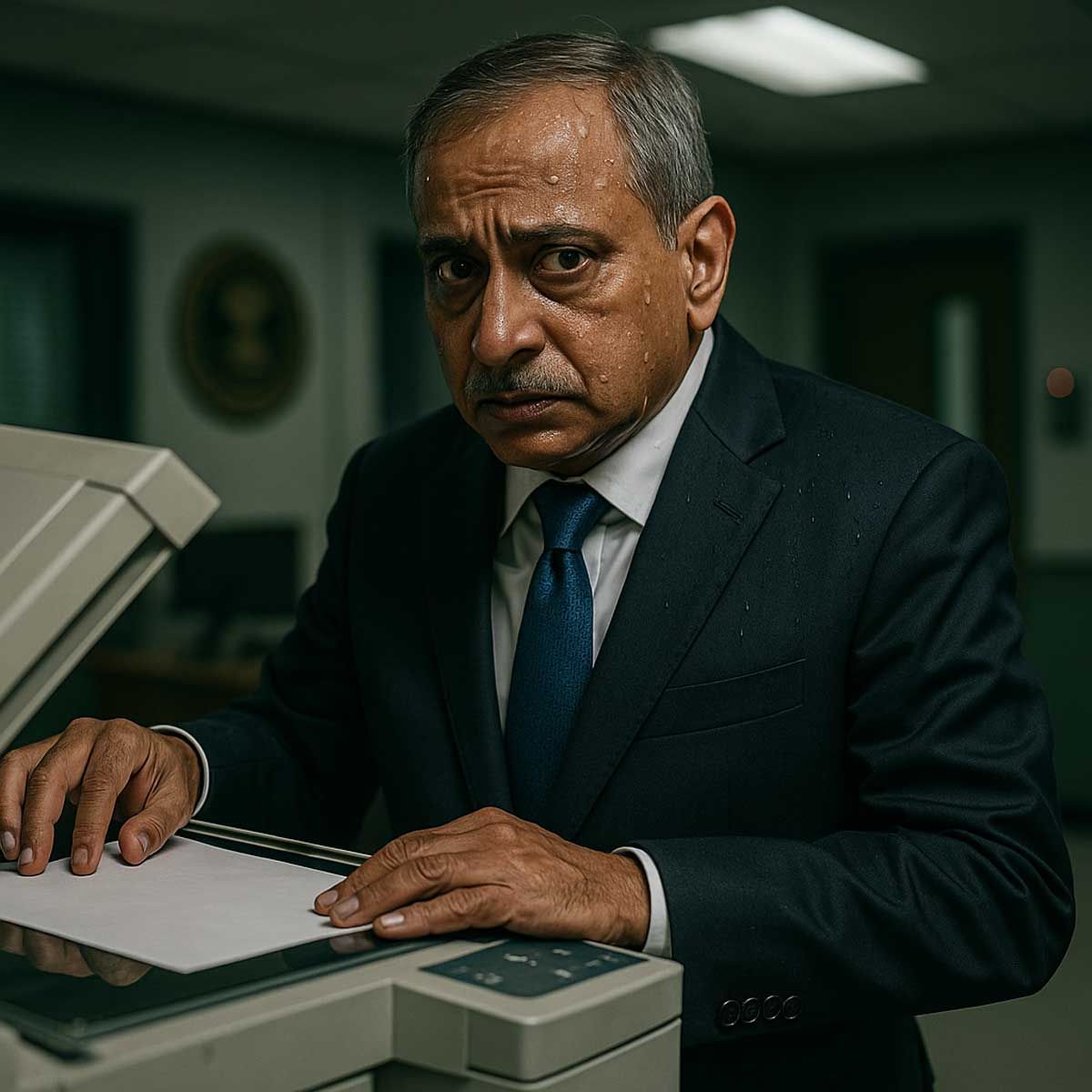More Coverage
Twitter Coverage
Satyaagrah
Written on
Satyaagrah
Written on
Satyaagrah
Written on
Satyaagrah
Written on
Satyaagrah
Written on
JOIN SATYAAGRAH SOCIAL MEDIA
Kapil Sibal, Ex-UPA Minister & Supreme Court advocate, known for his opposition to the Ram Mandir in the SC on behalf of the Sunni Waqf Board, now terms the temple's consecration ceremony a 'show-off', while maintaining that Lord Ram resides in his heart

On the 25th of December, a Monday that has now caught the attention of the nation, Kapil Sibal, a figure known for his past as the Former UPA Law Minister and a current Rajya Sabha MP, made a statement that has stirred a significant amount of controversy and discussion. Sibal, a name often intertwined with critical views on religious matters, particularly concerning Hinduism, has once again stepped into the spotlight with his latest remarks.
|
During a conversation with the news agency ANI, Sibal was questioned about the opposition's perspective on the Ram Mandir, a topic of deep religious and cultural significance in India. It's a subject that has been a focal point of heated debate and sentiment for decades, touching the hearts and beliefs of millions across the nation. His response was both direct and, to many, provocative. Kapil Sibal remarked, "Lord Ram resides in my heart," a statement reflecting personal faith and devotion. However, what followed this declaration of faith was a critical view of the Pran Pratishtha or consecration ceremony of Ram Lalla at the Ram Janmabhoomi in Ayodhya. He termed the event as a "show off," a phrase that has since echoed in various circles, sparking a range of reactions.
This comment is particularly notable considering Sibal's history with the Ram Mandir issue. He has been a vocal opponent in the legal battles surrounding the Ram Mandir, particularly during his tenure as a UPA Law Minister. His stance in the Supreme Court against the construction of the Ram Mandir had already positioned him as a controversial figure among those who supported the temple's construction. To them, Sibal's opposition was seen as not just a legal or political stance but as a direct affront to their religious sentiments.
In light of this history, his latest remarks have added fuel to the fire of criticism against him, particularly from those who perceive his comments as yet another instance of his alleged disdain for Hindu beliefs and practices. His statement about declining any invitation to the grand inauguration of the Ram Mandir further cements this perception among his critics. For many, this refusal to participate in what they consider a historic and sacred event is seen as a clear sign of disrespect and a continuation of what they believe to be his pattern of opposing Hindu interests.
|
|
Kapil Sibal, the Rajya Sabha MP, known for his outspoken and often controversial viewpoints, especially regarding Hinduism, has once again entered the fray of public discourse with remarks targeting the Bharatiya Janata Party (BJP). This time, his criticism centers around the BJP's role in the construction of the Ram Mandir, a project of immense religious and cultural importance to many in India.
Sibal, in a clear and pointed accusation, claimed that the BJP, while actively involved in building the Ram Mandir, does not truly embody the traits associated with Lord Ram. This statement is loaded with implications, especially given the BJP's identification with Hindu nationalism and its role in championing the cause of the Ram Mandir. For Sibal to assert that the party's actions are at odds with the virtues of Lord Ram is not just a political critique but also a moral and ethical judgment.
Elaborating his viewpoint, the former Congress leader said, “This whole issue is a show-off. They (BJP) talk about Ram but their behaviour, their character are nowhere close to Lord Ram’s. Truthfulness, tolerance, sacrifice, and respect for others are some of the traits of Lord Ram but they do exactly the opposite and say we are glorifying Ram.” Here, Sibal seems to be accusing the BJP of hypocrisy, alleging that their actions contradict the values they claim to uphold. This accusation, coming from someone who has been critical of Hindu practices and sentiments in the past, could be perceived as yet another instance of his antagonism towards Hindu beliefs, rather than a genuine concern for moral integrity.
When asked about his potential attendance at the consecration ceremony on 22nd January, Sibal's response was deeply personal and reflective of his stance on public displays of faith. He stated, “Mere dil mein toh Ram hai, main koi dikhave ke liye kaam nahi karta hoon.” (Lord Ram resides in my heart, I don’t do anything for show-off). While this could be seen as a statement of personal faith, given Sibal's history of opposing Hindu interests, it might also be interpreted as a veiled critique of public religious expressions, particularly those supported by the BJP.
Moreover, his remark, "Ram has taken me here, then I must be doing something right," can be construed not as a humble reflection of faith but rather as a self-righteous justification of his controversial stands, especially against the backdrop of his past opposition to the Ram Mandir in the Supreme Court.
|
This perception is further compounded by the fact that other senior Congress leaders, like Shashi Tharoor, have previously expressed similar views, adding to the sense of a collective opposition within certain political circles to the sentiments of many Hindus.
Shashi Tharoor, another prominent figure in the Congress party, had earlier voiced an opinion that aligns closely with Kapil Sibal's perspective on the Ram Mandir. Tharoor had controversially claimed that no ‘good Hindu’ would want a Ram Mandir at the Babri site, suggesting instead that one should have the Ram Mandir in one’s heart. This statement, much like Sibal’s, seemed to challenge the very essence of what many Hindus hold dear – the physical manifestation of their faith and reverence in the form of the Ram Mandir at a site they believe to be Lord Ram's birthplace. Tharoor’s comments, echoed now by Sibal, can be seen as a direct affront to these deeply held beliefs, further alienating those who support the temple's construction.
Kapil Sibal's role in this discourse has been notably more confrontational, especially given his active involvement in the legal battles surrounding the Ram Mandir. It's critical to note that Sibal was at the forefront, spearheading the legal course of action in courts, opposing the rights of Ram Lalla and the reclamation of what many believe to be the birthplace of Lord Ram. This legal opposition was not just a matter of professional duty for Sibal; it has been perceived by many as a clear indication of his personal stance against Hindu interests, particularly regarding the Ram Mandir issue.
Sibal’s legal activism in this context is seen by critics as more than just a legal argument; it is viewed as a manifestation of his alleged disdain for Hindu beliefs and practices. His efforts to halt or delay the construction of the Ram Mandir, a project that holds immense emotional and spiritual significance for a vast number of Hindus, is perceived as a direct opposition to their faith. This perception is further fueled by the broader context of his and his party's statements and actions, which many interpret as being consistently unsympathetic, if not hostile, towards Hindu sentiments.
UPA Government's Denial of Lord Ram's Existence and Kapil Sibal's Continued Opposition
The Congress-led UPA1 government's stance in September 2007, under which Kapil Sibal was a prominent figure, has been a subject of significant controversy and criticism, particularly among Hindus. The government's declaration in court denying the historical existence of Lord Ram was not just a legal statement but also a cultural and religious affront to many.
In 2007, the UPA government's affidavit stated, “Valmiki Ramayana and Ramcharitmanas admittedly form an important part of ancient Indian literature, but these cannot be said to be historical records to incontrovertibly prove the existence of the characters and occurrences of events depicted therein.” This statement was made in the context of opposing the demand to scrap the Setusamudram project, which was believed to potentially damage the Ram Setu, a structure of great mythological importance to Hindus. The affidavit, in essence, dismissed two of Hinduism's most revered texts as lacking historical validity, especially in the context of Lord Ram’s existence. This was perceived by many as a direct challenge to Hindu faith and sentiments, deepening the sense of alienation and disrespect among believers.
The role of Kapil Sibal in this scenario further exacerbates the criticism against him. Sibal, as a former UPA Minister and Supreme Court advocate, actively fought the Ram Janmabhoomi case for the Sunni Waqf Board. His opposition to the building of a magnificent Ram Mandir at the then-disputed site in Ayodhya was not just a professional endeavor but also seen as an extension of his alleged animosity towards Hindu beliefs. This perception was strengthened by his approach in the court, where he employed what many viewed as dilatory tactics, requesting the Supreme Court to delay its decision in the Ram Janmabhoomi case until the 2019 elections. Such a request was seen by many as a tactic to prolong the dispute and deny Hindus the closure and fulfillment of their long-standing desire to see a Ram Mandir at what they believe to be Lord Ram's birthplace.
Kapil Sibal’s actions, both as part of the UPA government and in his capacity as an advocate in the Supreme Court, have been consistently interpreted as indicative of a broader narrative of opposition to Hindu interests. His involvement in the legal and political discourse surrounding the Ram Mandir, coupled with the UPA government's stance on the historical existence of Lord Ram, has made him a central figure in the controversy and a subject of intense criticism from those who see his actions as an affront to Hindu faith. This narrative positions Sibal as not just a legal or political adversary but as someone who is perceived to be fundamentally opposed to the core beliefs and sentiments of many Hindus.
Opposition’s Stance on Ram Mandir: Kapil Sibal's Refusal to Attend Amid Wider Political Disinterest
The upcoming Pran Pratishtha ceremony of Ram Lalla in Ayodhya, scheduled for 22nd January, marks a monumental occasion in India's cultural and religious landscape. Prime Minister Narendra Modi's participation underscores its national significance. The Ram Mandir Trust, recognizing the event's importance, has extended invitations to eminent personalities across various fields, aiming to make this a grand and inclusive celebration.
Among those invited are notable Congress leaders, including Congress president Mallikarjun Kharge, Sonia Gandhi, and Adhir Ranjan Chowdhury, the party’s leader in the Lok Sabha. Their invitation is particularly significant given the Congress party's complex history with the Ram Mandir issue. The party's response to this invitation could be seen as indicative of its current stance on this deeply emotional and politically charged matter.
However, the reaction from certain sections of the opposition has been of disinterest or outright refusal. CPI(M) leader and I.N.D.I. Alliance member Sitaram Yechury has reportedly already declined the invitation. D Raja, his counterpart in the CPI, is also expected to skip the ceremony. This response aligns with the generally perceived secular or left-leaning stance of these parties, which often distances them from religious ceremonies, especially those embroiled in political controversies.
Kapil Sibal, a Rajya Sabha MP, has also hinted at his non-participation, further affirming his stance on the Ram Mandir issue. He cites the reason as Lord Ram’s place in his heart, implying a personal devotion that he does not wish to manifest in public celebrations or political events. While this may seem like a statement of personal faith, given Sibal's consistent opposition to the Ram Mandir – legally and rhetorically – it is viewed critically by many. To them, this refusal to attend is not just a personal choice but a continuation of what they perceive as his longstanding antagonism towards Hindu interests and sentiments.
Sibal's decision to not attend the Ram Mandir inauguration, along with the broader opposition's lukewarm response, highlights the deep divides in Indian politics over religion and cultural identity. While the Ram Mandir is a symbol of religious and cultural pride for many Hindus, it remains a point of contention and political maneuvering for others.
 |
 Support Us
Support Us
Satyagraha was born from the heart of our land, with an undying aim to unveil the true essence of Bharat. It seeks to illuminate the hidden tales of our valiant freedom fighters and the rich chronicles that haven't yet sung their complete melody in the mainstream.
While platforms like NDTV and 'The Wire' effortlessly garner funds under the banner of safeguarding democracy, we at Satyagraha walk a different path. Our strength and resonance come from you. In this journey to weave a stronger Bharat, every little contribution amplifies our voice. Let's come together, contribute as you can, and champion the true spirit of our nation.
 |  |  |
| ICICI Bank of Satyaagrah | Razorpay Bank of Satyaagrah | PayPal Bank of Satyaagrah - For International Payments |
If all above doesn't work, then try the LINK below:
Please share the article on other platforms
DISCLAIMER: The author is solely responsible for the views expressed in this article. The author carries the responsibility for citing and/or licensing of images utilized within the text. The website also frequently uses non-commercial images for representational purposes only in line with the article. We are not responsible for the authenticity of such images. If some images have a copyright issue, we request the person/entity to contact us at This email address is being protected from spambots. You need JavaScript enabled to view it. and we will take the necessary actions to resolve the issue.
Related Articles
- Flower seller Madhu, another Hindu youth after #HarshaMurder assaulted and stabbed by a mob led by Tauseef with a long sword kind of weapons in broad daylight on the streets of Shivamogga at New Mandli locality in Karnataka
- Hindus saved Sikh Gurus, provided weapons training and donated for Gurudwaras: Shattering the Hindu Vs Sikh narrative
- Why authorities ignoring conspiracy of Sexual objectification of Hindu women: #Hslut4Mstud Users on Reddit, Twitter and Tumblr are targeting Hindu women with pornographic content ‘for Muslim studs’
- Dharmo Rakshati Rakshitah: West perpetuated through colonization and supremacist goals continues to be their calling card, and bearing the brunt of their callous disregard for others is Vedic Hindu culture
- 22-year-old Hindu law student Sharmishtha hunted down and arrested by Kolkata Police after Islamist mobs flooded her with Sar Tan Se Juda, rape, and murder threats—just for exposing a Pakistani troll who mocked the slaughter of Hindus in Pahalgam
- Exasperated with the fanatical conversion and discrimination, Hindus demonstrated against Christian school in MP
- If Islam Is a Religion of Violence, So Is Christianity – the scientifically barbaric and intolerant religion
- Missionaries cannot have freedom of expression to vilify others’ religious beliefs - Madras HC refused FIR quash on Catholic priest’s anti-Hindu hate speech
- "Adding 'just kidding' doesn't make it okay to insult the Principal": Studio Xo Bar in Gurgaon cancelled Kunal Kamra’s show after members of Bajrang Dal & VHP protested against the scheduled show, comedian is a repeated offender of insulting Hindu deities
- Jo Chopra, an NGO Director misled about Christmas being banned in Uttarakhand to malign Hindutva, apologizes after being called out
- NCERT turns woke with sex-interested contributor Vikramaditya Sahai pushing gender jargon on children: How LGBT activists are calling legitimate criticism of a public figure ‘transphobia’
- 2 May to 15 May - 2021 - Hindus under attack: weekly roundup of hate-crimes, persecution and discrimination against Hindus
- Who are Trads and Raitas and what is the supposed ‘internal friction’ in the ‘Right Wing’?
- "Better to fight for something than live for nothing": 'Hindu on Campus' batch exposed to online assault, faces slanderous attack by Hindu Students Association of American University, often been targeted by Islamists and the cabal of leftists and liberals
- ‘Breast Tax’ to cover their breasts: A False Story to Attack Hindus based on a pseudo-historical legend




























